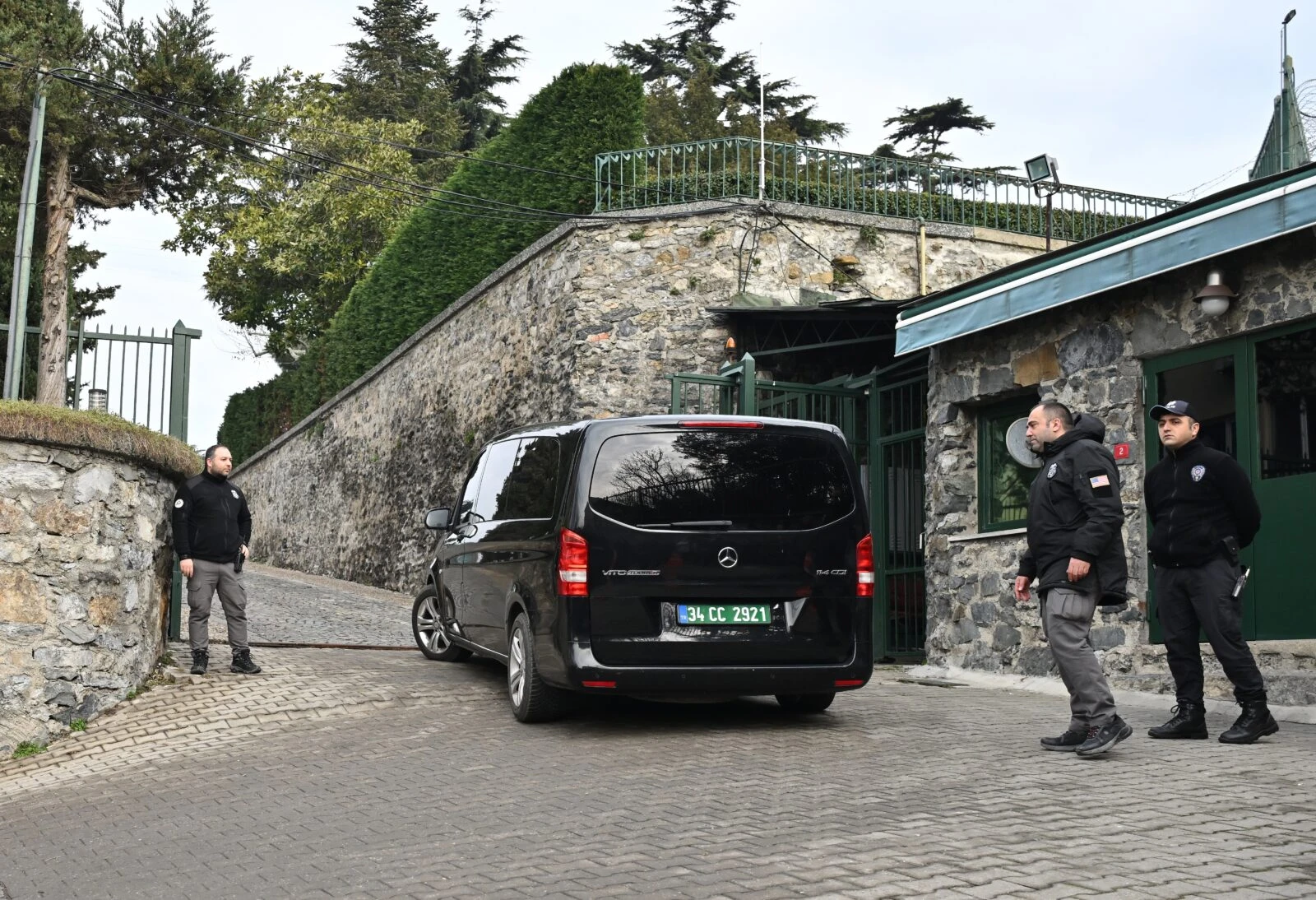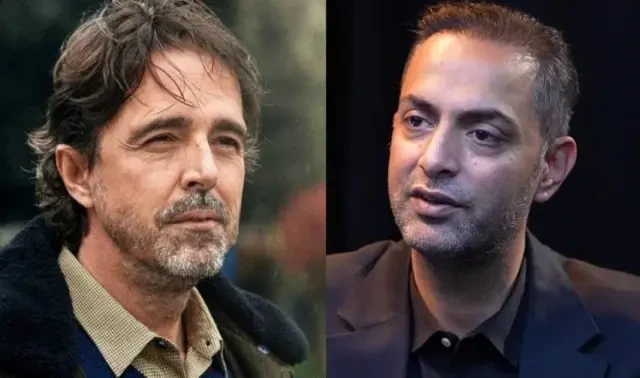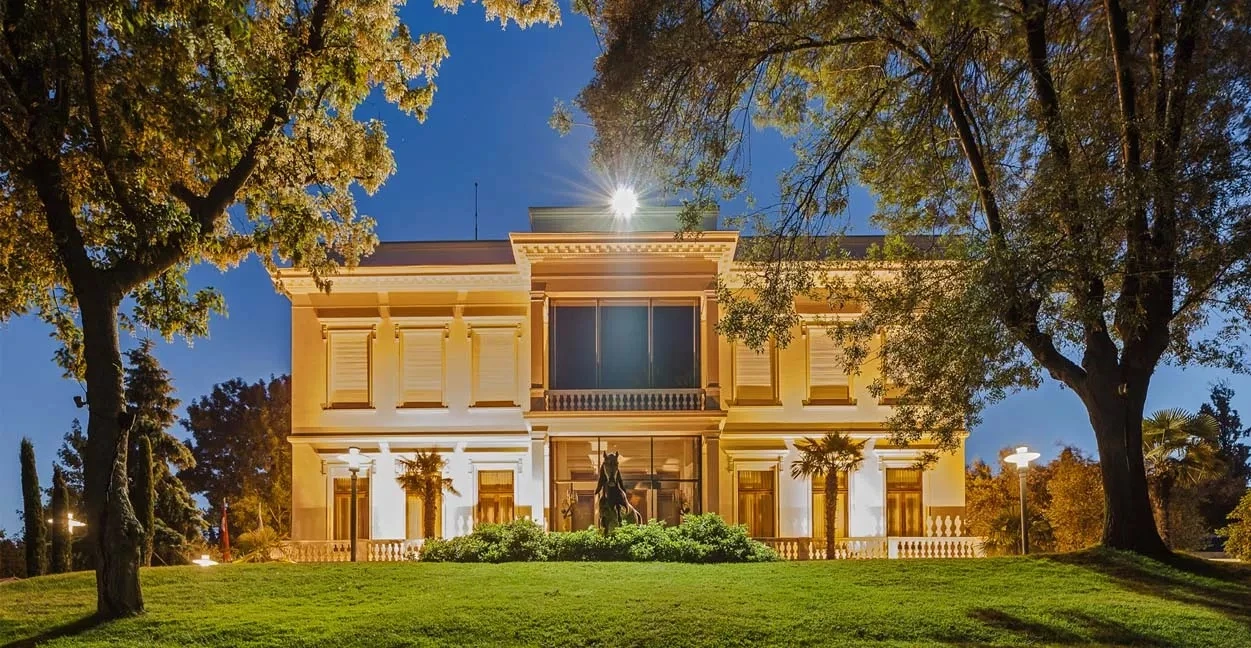Istanbul as quiet host of dialogue between US and Russia
 Traditional Russian wooden nesting dolls, Matryoshka dolls, depicting Russia's President Vladimir Putin and US President Donald Trump are displayed for sale at a gift shop on the touristic Arbat street in downtown Moscow on March 19, 2025. Russian President Vladimir Putin agreed in a call with US counterpart Donald Trump on March 18, 2025 to halt attacks against Ukrainian energy targets, but refused a full ceasefire unless the West halts all military aid for Kyiv. (Photo by Nikita BORISSOV / AFP)
Traditional Russian wooden nesting dolls, Matryoshka dolls, depicting Russia's President Vladimir Putin and US President Donald Trump are displayed for sale at a gift shop on the touristic Arbat street in downtown Moscow on March 19, 2025. Russian President Vladimir Putin agreed in a call with US counterpart Donald Trump on March 18, 2025 to halt attacks against Ukrainian energy targets, but refused a full ceasefire unless the West halts all military aid for Kyiv. (Photo by Nikita BORISSOV / AFP)
The upcoming meeting between American and Russian officials in Istanbul is unlikely to make headlines on Thursday. The second round of diplomatic contact is not expected to lead to major shifts, and few are pretending otherwise.
Still, in an era where silence often replaces diplomacy, the fact that two major powers are willing to sit down and discuss face-to-face is a significant development in itself.
The choice of Istanbul as the setting is also worth noting. Türkiye, silently claiming credit, has positioned itself as a practical host for difficult conversations and hostage exchanges. It has stepped in quietly, offering a neutral space when others have become too politically charged or symbolically rigid.
Istanbul, with its history and strategic calm, offers something few cities can provide today: a meeting place free of theatrical posturing. This is not just about convenience; it is about trust, however limited.
Narrow road to normalization
This second round of talks will focus on what may seem like minor technical issues: diplomatic staffing, consular functions, and daily operational matters.
It builds on top of the late February 2025 diplomatic meeting in Istanbul to mutually reopen diplomatic missions following the start of the Ukraine war. It was the first direct and overt meeting between Washington and Moscow—a historic step.
In international relations, the small things often matter the most. Without the machinery of basic communication, no strategic framework can hold. Treaties are not built on good intentions alone; they rest on functioning linkages and systems.

More sensitive topics, such as arms control and long-term security planning, remain far from the table. Russian officials have been clear that discussions on the New Strategic Arms Reduction Treaty, known as New START, cannot begin again without a serious rebuild of trust.
They also argue that any future deal must include the nuclear capacities of other countries.
Whether one agrees or not, it reflects a world no longer shaped by just two powers. The landscape is more crowded, and agreements must be more inclusive if they are to last.
Still, the Istanbul meetings serve a purpose — signaling a rare, cautious willingness to keep the dialogue going.
In a time when threats are easier to trade than decent words, even the quiet practice of dialogue stands out. It may not solve much for now, but it keeps the possibility of understanding from slipping away entirely.



